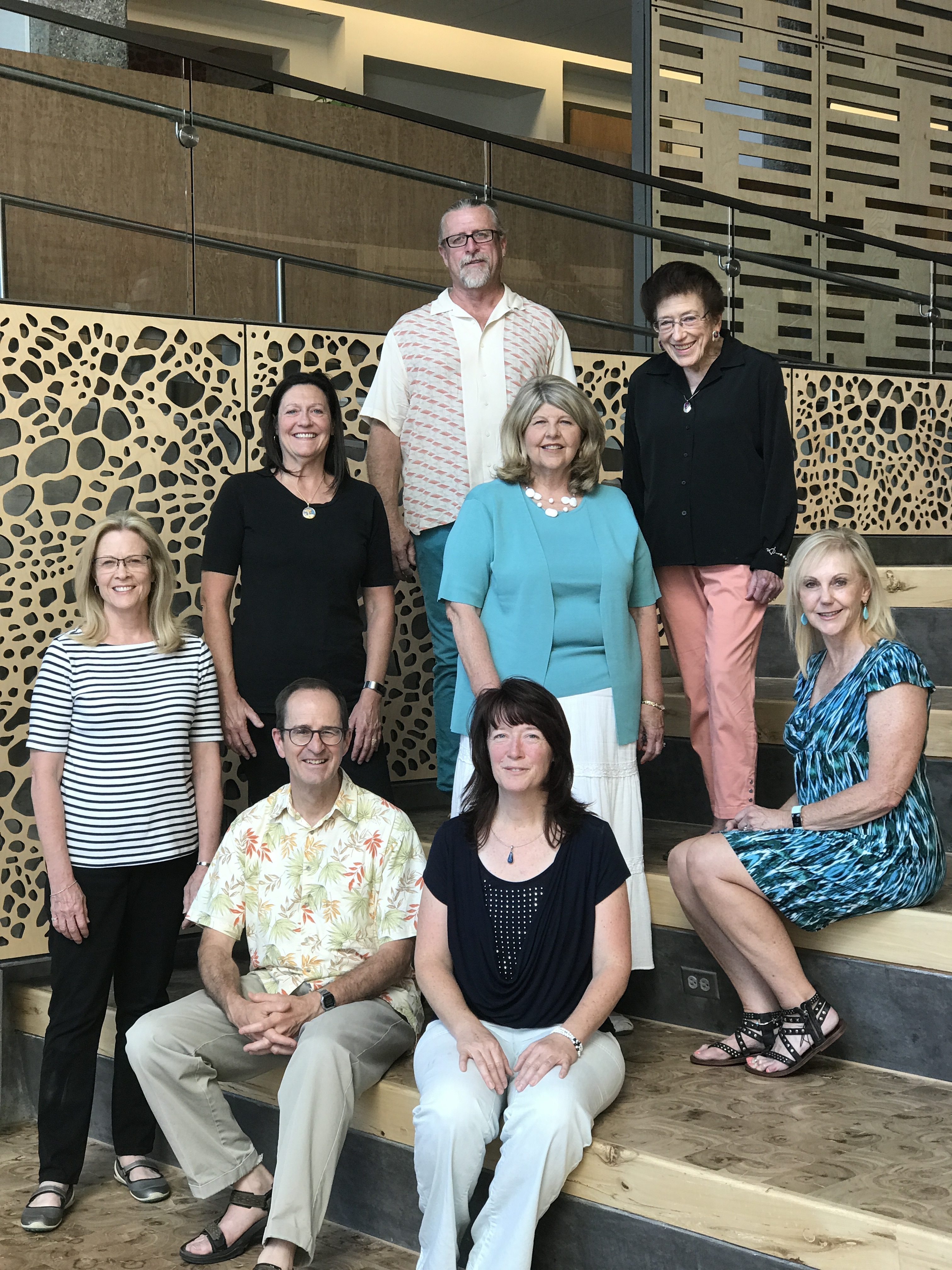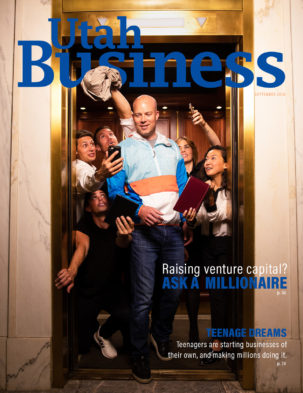Each year the University of Utah College of Nursing’s Caring Connections program provides group grief counseling to dozens of Utah suicide and traumatic death survivors.
These therapy groups would be impossible without a selfless group of more than 50 volunteer facilitators who have donated their time and expertise six weeks at a time, year after year for the past two decades. These social workers, psychologists, advanced practice nurses, counselors and chaplains truly are healthcare heroes.
Ten of these dedicated mental healthcare providers giving of themselves (past recipients of Caring Connections’ Carma Kent Award) will be honored by Utah Business magazine at a luncheon Sept. 20:

Ann Hutton—A professor at the College of Nursing, counselor and psychotherapist, Hutton has facilitated an eight-week suicide survivor group three times a year for almost 20 years. (The only session she missed was after the death of her own husband.) During the school year, professor Hutton prepares behavioral and mental health doctor of nursing practice students for their own careers as counselors and psychotherapists.
Donna Reid—A longtime teacher and school principal, Reid has facilitated children’s grief and suicide groups. “As both a participant and a facilitator, I have felt the powerful impact of the group process,” Reid says. “It is amazing to watch how members of the group help each other transition from being grief-stricken to feeling resolved and at peace. As time spent interacting with one another progresses, I can see, in their faces, hope returning.”
Susan Roberts—University of Utah Health’s chaplain is on call 24/7 at University Hospital, University Neuropsychiatric Institute (UNI), Huntsman Cancer Hospital and all clinics. And still, she finds time to facilitate grief support groups.
Natalie Peace—A former wingman advocate from Hill Air Force Base, Peace partnered with Caring Connections to develop and facilitate support groups for suicide survivors in Layton and Ogden, with special outreach to military families. “Grief work ultimately is about finding that new normal and living life without a loved one we have lost,” she says. “I find in my work that many things that hold us back in life are attached to some sort of loss. I am blessed to be a guide to those walking the most difficult path—a personal grief journey.”
Sandy Moody—After her daughter Jaimee was killed in a pedestrian/truck accident, Moody decided to go back to school, earning a master’s degree in social work from the University of Utah. The owner of a counseling service in American Fork, Moody says: “Grief is a journey each person must navigate on their own, and yet it is extremely helpful to talk with others who speak the unspoken language of grief. We can relate to so many feelings and help buoy each other up.”

Joe Novotne—A chaplain at Bristol Hospice, Novotne facilitates a teen grief group, the majority of whom are survivors of suicide. After more than 20 years of pastoral experience, he has a spiritual perspective. “To me, helping people in their grief is to walk with them in their journey, to identify with them in their pain, and to provide a safe relationship where they can share honestly and openly without judgment.”
Steve Andrus—Andrus came to Caring Connections’ grief groups after the untimely death of his own son. He went back to school to get a master’s degree in psychology so he could work full time as a counselor.
Donna Hyde—Several years ago, Hyde lost her husband Steve in a helicopter crash, leaving her with five school-aged children at home. She went back to school, earning two degrees in social work before working at Head Start and with at-risk families at the Family Connection Center. Facilitating a grief group with Caring Connections lets her tap into her education and personal experience. “Our groups have been filled with love, anger, sorrow, hope and all of the emotions that surface after the loss of someone,” she says.
Vicki Pond—In 1997, Pond lost her father, broke her neck in a car accident and then her daughter was killed. As she recovered physically and spiritually, Pond completed a year-long chaplain residency at the George E. Wahlen Department of Veterans Affairs Medical Center. She serves as a chaplain at Primary Children’s Medical Center. “To be with people who are hurting and watch them connect to their own feelings, to other people and especially to their own spiritual resources is an exhilarating experience.” Pond adds, “I feel honored and energized by the miracles of great love and healing that are all around us.”
Mark de St. Aubin—A faculty member at the University of Utah College of Social Work, St. Aubin became familiar with loss and grief at an early age with the death of his parents and grandparents. Along with nearly 30 years of community-based practice at the VA, pediatric rehabilitation centers, geriatric home care and hospice, St. Aubin also facilitates Caring Connections’ grief groups. “Grief is meant to be shared in order to be healed,” he says.